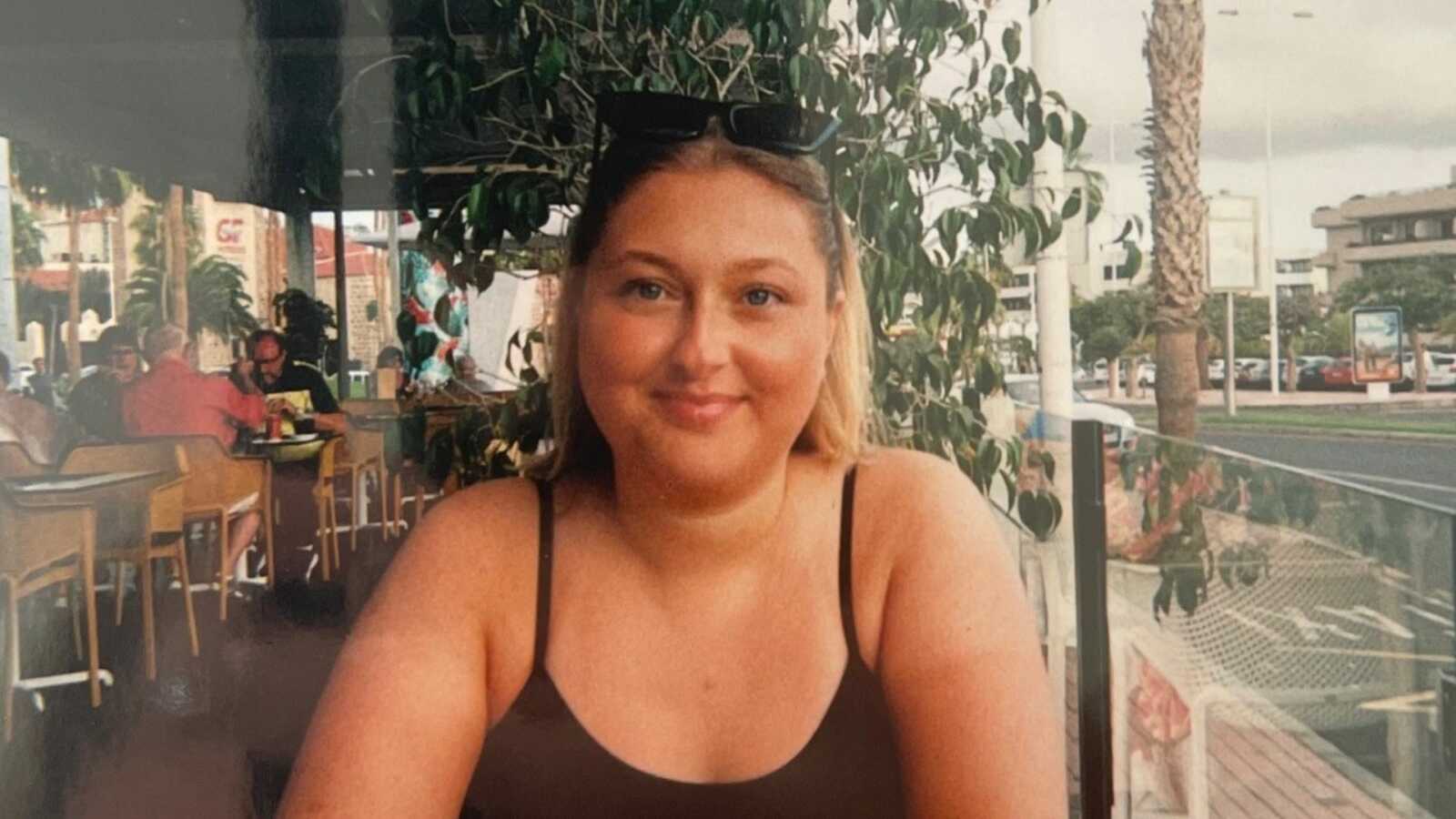Contracting Glandular Fever
“It was in May 2018, just one month after my 18th birthday, that I first became unwell. I was on holiday in Spain at the time with a friend but just a few days into the holiday my parents flew out to Spain to collect me and fly me home. I had a fever, tonsillitis, quinsy, swollen glands, and sickness.
When I arrived home I was so weak my dad had to carry me from the car into the house as I was unable to walk, I had never felt so ill in my entire life. I visited my GP who told me I had a viral infection and took some blood work which later came back to confirm I had Glandular Fever. My GP told me there is no medication to treat Glandular Fever and that I should just drink plenty of fluids, avoid alcohol, and rest.
As the weeks went on the fever, tonsilitis, quinsy and sickness resolved themselves, but my glands were still enlarged and my body was weak and fatigued at a level I had never experienced before. I felt as if I had been poisoned. I was sleeping day and night and didn’t leave my bed other than to go to the toilet and shower which my mum would assist me with.
I remember repeatedly saying to my parents, ‘I think this is it. I think this is the end for me. I think I am dying.’ I went back to the doctors for a second blood test which confirmed my viral load was decreasing so they didn’t need to see me again and advised me I should just continue to rest until I felt better.
Striving For Normalcy
As the weeks went by I remained extremely fatigued and the poisoned feeling lingered in my body, but as I’d followed the doctor’s advice, and given that there was no treatment for the virus, I felt I had no option other than to try and get back to my normal life.
Approximately 6-8 weeks after first becoming ill I started a phased return to work. For a while, each time I tried to increase my hours I’d quickly have to reduce them again. I’d work for a couple of hours in the morning and then return home to my bed where I’d stay until I returned to work for another couple of hours the next day.
However, over time I managed to return to work full-time and things went back to normal apart from that my glands remained swollen. Every 3-6 months I would get weeklong bouts of debilitating fatigue which would put me back to bed for a week or so, but on the whole, I could live my life how I wanted without any major health restrictions.
Gradually over the next couple of years, the bouts of debilitating fatigue became longer and more frequent. I worked with a nutritionist in an attempt to reduce the fatigue but to no avail. I had spoken to my GP and requested blood tests all of which came back ‘normal’, so he referred me to the Chronic Fatigue Syndrome Service at the hospital.
I had already researched my symptoms and came across Myalgic Encephalomyelitis (ME) also known as Chronic Fatigue Syndrome (CFS) and believed I was suffering from this. Although it was very mild, it didn’t come as a shock when my GP said he was going to refer me to this service. This was all my GP could do for me so I continued on as normal.
Progressing Fatigue Symptoms
My job had become more stressful, I was studying to become a Paralegal and I moved out of my parents’ house and moved into my own home with my boyfriend. My health deteriorated to the point where making it through the day was almost impossible. I was barely surviving, let alone living.
I’d wake up feeling as if I’d never slept and by the time I’d showered and driven to work, I was ready to go back to bed. I’d force myself to get through the day by drinking coffee after coffee to try and stop myself from falling asleep at my desk. I remember sitting at my desk and blinking back the tears because I didn’t have the energy to physically get to the printer which was just 2 meters from where I was sitting.
Some days, despite my best efforts, I couldn’t make it to the end of the day and a family member would come and collect me from work and I’d spend the rest of the day and night in bed. On the days I did make it through a full day I’d just collapse into bed until the next morning when I would get up and start the cycle again.
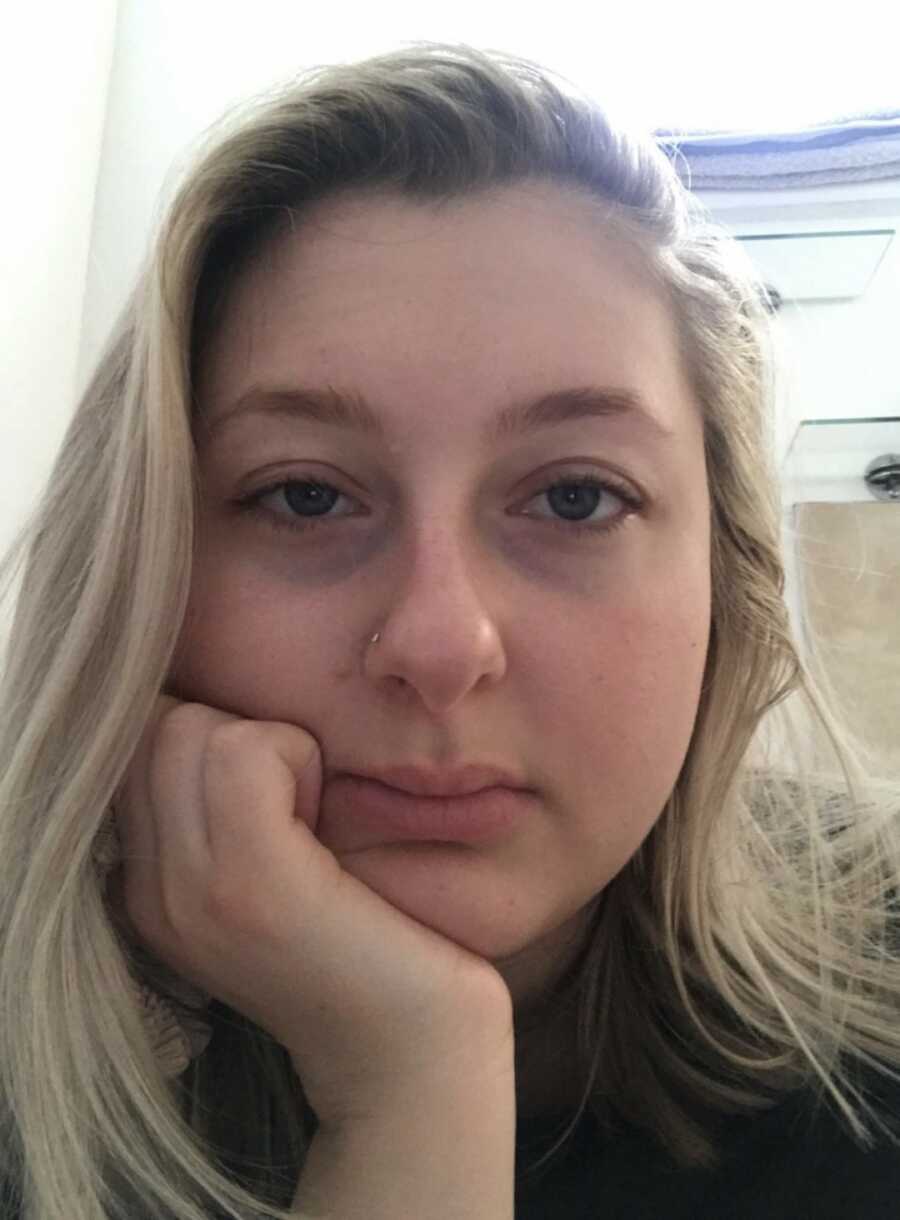
By the time Friday came around I was just relieved to have made it through another working week and even more relieved that I could spend the next two days resting. At this stage, my family had been telling me for some time I needed to slow down or stop altogether and my body was screaming the same message at me, but I was so close to finishing my studies and my inner perfectionist wouldn’t listen so I kept on pushing until I couldn’t push any longer and my body said no.
I went to work and took my final exam in the first week of March 2021 and I haven’t worked a day since. My GP initially signed me off work for 2 weeks with fatigue and almost 2 years later (as I sit and write this) I still have not returned to work.
I returned to my GP for further blood tests all of which came back ‘normal’ once more so he made a second referral to the Chronic Fatigue Syndrome Service at the hospital having heard nothing back from the first one he sent months and months prior. My GP said there is no cure or medication for ME/CFS and the message was that it is something I would have to learn to live with.
I was upset and scared, but it did not register that my life may be affected for years to come. I was still living in hope that I’d have a couple of months off work spent in bed and I’d be back to normal again. Unfortunately, this was far from reality.
I was largely bedbound only getting up for a shower which then put me back to bed for the remainder of the day. On a good day, I’d get up to eat and then return to bed. My mom would come to my house and drop off pre-cooked meals, do the housework, collect my washing, wash and dry my hair for me, do my food shopping, etc.
Chronic Fatigue Syndrome Diagnosis
Having made no improvements, in April 2021 I had an appointment with a private doctor who specialized in ME/CFS. This doctor gave me an official diagnosis of ME/CFS and advised if I supported my body in the right ways, I could return to 70-80% of my full health in a few years’ time. It soon became clear that I was not going to be returning to work any time soon and with that came the difficult decision to move out of my home with my boyfriend and move back in with my parents which I did in June 2021.
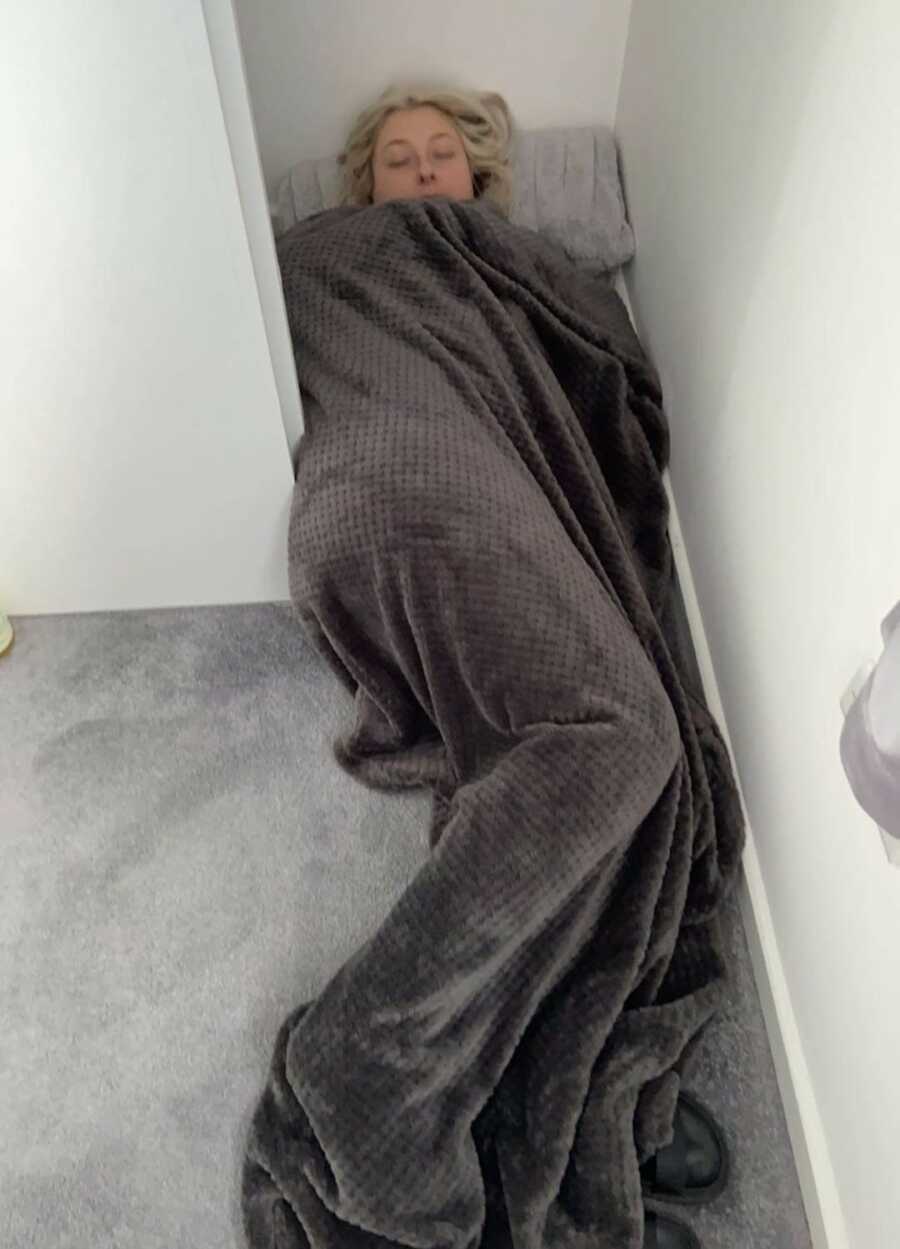
The next 8-12 months were the toughest of them all. I was sick and I wasn’t going to get better any time soon, and at this stage, I questioned if I’d ever get better at all. I lost my health but as a result, I lost so much more.
My mum became my carer doing everything for me, I had lost all independence both physically and financially. I lost contact with friends, I lost connection with the outside world, I lost freedom, and my relationship was suffering. I became a shell of the person I once was.
Some days I would lose hope and say to my parents, ‘If I don’t get better and this is my life for the rest of my life then I don’t want it. I don’t want to be living if I have to live like this.’
Changing My Lifestyle
Despite these feelings and the extremely difficult days I faced I was determined to do anything in my power to get better. I threw myself into my recovery researching when I could (which started as about 5 minutes per day before I’d have to go back to sleep) anything and everything to do with ME/CFS and ways in which others had recovered.
I switched to an anti-inflammatory diet, started a supplement regime, had an intense course of vitamin B12 injections, strictly paced myself, did an online course on symptom management with the ME/CFS service at the hospital, rested, and slept…a lot. I started to make some improvements but discovered recovery from ME/CFS is not linear, with each step forward came another 2 backward. This was emotionally draining but I persevered because if I wanted to get better what other option did I have?
I continued my research and came across the Perrin Technique which was developed by an Osteopath called Raymond Perrin. In short the Perrin Technique manually stimulates the fluid around the brain and the spinal cord aiding your lymphatic system and allowing for the release of built-up toxins from the body. Finding a Perrin Practitioner was difficult, the closest registered practitioner was an 80-mile drive (one way!) but with there being so few treatment options available for ME/CFS I felt I had to give it a go and thankfully for me, my parents were of the same view.
I went for an initial consultation in which the practitioner gives you a score out of 10 (1 being the worst) and I scored a 3. The practitioner explained this means that if I have 18 months’ worth of treatment, I could reach a 7 or 8. I was pleased with this as it aligned with what the private doctor had said about returning to 70-80% of my original health.
Perrin Technique Treatments
I started weekly treatment in March 2022, my mum would drive the 160-mile round trip for a 45-minute appointment. To begin with, the treatment made me feel worse which I was warned of by my practitioner. For 24-48 hours after treatment, I felt as if I had the flu but my practitioner reassured me and explained this is a good sign as it means the toxins are shifting.
I started to truly believe the treatment worked when I saw physical signs. I had skin eruptions which were toxins being released through my skin and my glands went down for the first time since 2018.
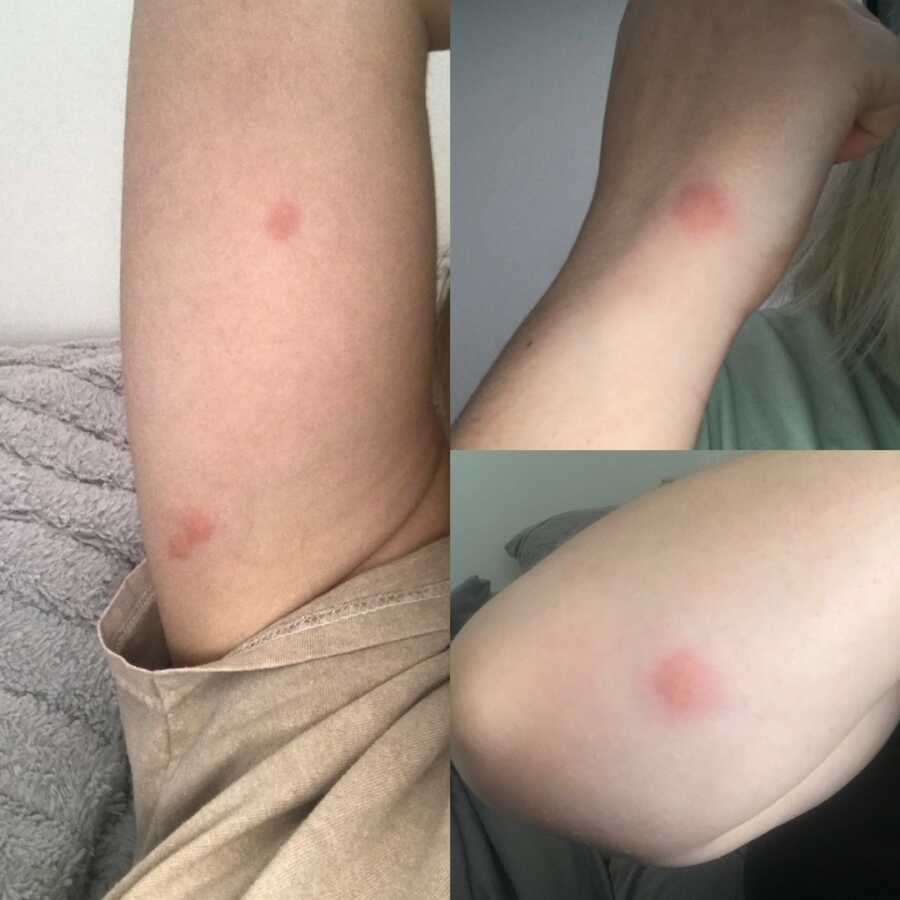
Again, very gradually, and with some ups and downs along the way, I made more improvements over the next 6 months. I could leave the house more frequently, drive for 5-10 minutes, spend more time out of bed and cook more, though these were all still balanced with a great deal of rest and sleep.
These sound like small things but they felt big to me. My energy levels were slowly rising and I felt as though my independence was starting to return.
Although everything was going in the right direction I continued researching ME/CFS and reading others’ recovery stories. In a lot of the stories, I read people said good improvements were made by doing all of the things I was currently doing but that their recovery really took off when they addressed what they believed to be the root cause of ME/CFS, namely nervous system dysregulation.
Attending Chronic Fatigue Syndrome School
I looked into this topic more and in October 2022 I signed up for an online course called CFS school. CFS school advocates that ME/CFS is a mind-body syndrome that can be recovered by rewiring the brain and healing the body through what is called ‘top down’ and ‘bottom up’ techniques.
I’ve learned that my health issues actually started long before the Glandular Fever in 2018 and that my nervous system had unconsciously been under a great amount of stress for many years and the virus overwhelmed my already out-of-balance nervous system. I started this course 3 months ago and remain only a short way through but the knowledge I have gained so far has created a big shift in the way in which I think about ME/CFS and how I now respond to my symptoms.
From September 2022 to now, January 2023, I have seen huge improvements in my health which I credit to the Perrin Technique (which I continue to have with a newly qualified practitioner much closer to home), my newfound knowledge about the root cause of my illness and the time I have given my body to heal. I now help with the cooking at home and no longer rely on my mum to prepare my meals for me, I wash and dry my own hair, I can go out of the house for longer periods of time before tiring, I can drive short distances, I can read for 30 minutes, I can have an alcoholic drink or two, I’ve been abroad on holiday, I successfully looked after the house and myself for 2 weeks when my parents went on holiday, and I don’t have to nap every day.
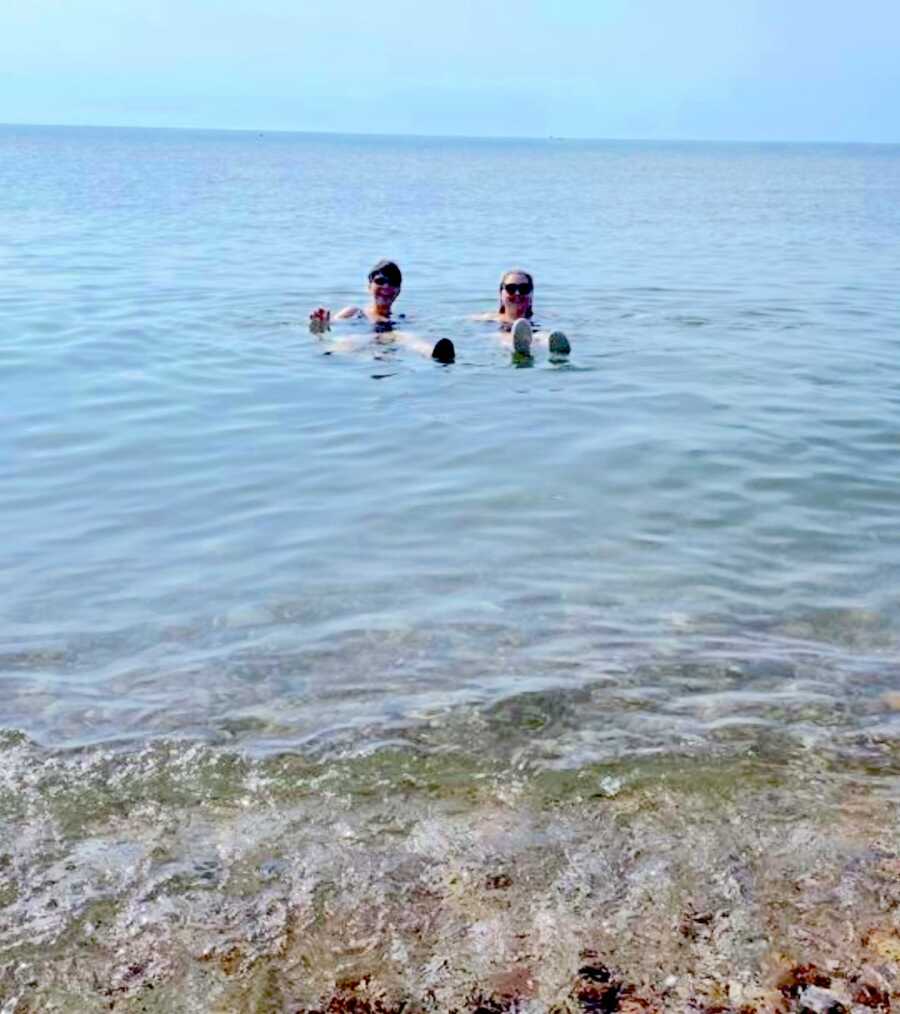
My Future With Chronic Fatigue Syndrome
I still have a long way to go and the fatigue is still very present but it doesn’t feel as heavy as it once did and the poisonous feeling in my body is gone. Everything feels different now, I finally feel like I am getting better, I finally feel like I am starting to live again, and I can finally plan and look forward to the future. I have a second abroad trip booked and am hoping to restart some form of work within the first half of 2023.
Whilst the last 4 years have undoubtedly been the hardest I have faced, I am thankful for the lessons I have learned which I will carry with me for life. This illness may have taken a lot from me but it has equally given me so much.
It has given me appreciation and gratitude for the ‘small’ things in life, and the opportunity to live a slower-paced life in a society that encourages and promotes overworking. It has given me a newfound respect for my body and all that it does to simply keep me alive day and night, it’s given me the ability to listen to the needs of my body, both physically and mentally (you are allowed to say NO!). It has given me courage, strength, resilience, compassion, understanding, empathy for myself and others, and a deeper connection with myself.
I truly believe I will recover from this illness, not just 70-80%, but 100%, and that when I do my life will be fuller, happier, and healthier than it ever was before. One of my favorite quotes I have come across in my journey is, ‘When people say ‘recovery’ you typically think of returning to how you were before your illness. But there is no going back. You do not merely recover, but reinvent yourself. You become something completely different from what you were before.’
If you can relate to my story in any way, I see you and I hear you. Please take this as a message of hope.
I don’t just believe that recovery is possible for me, I believe that recovery from ‘chronic’ or ‘mystery’ illnesses is possible for anyone with access to the correct knowledge, understanding, and tools.”
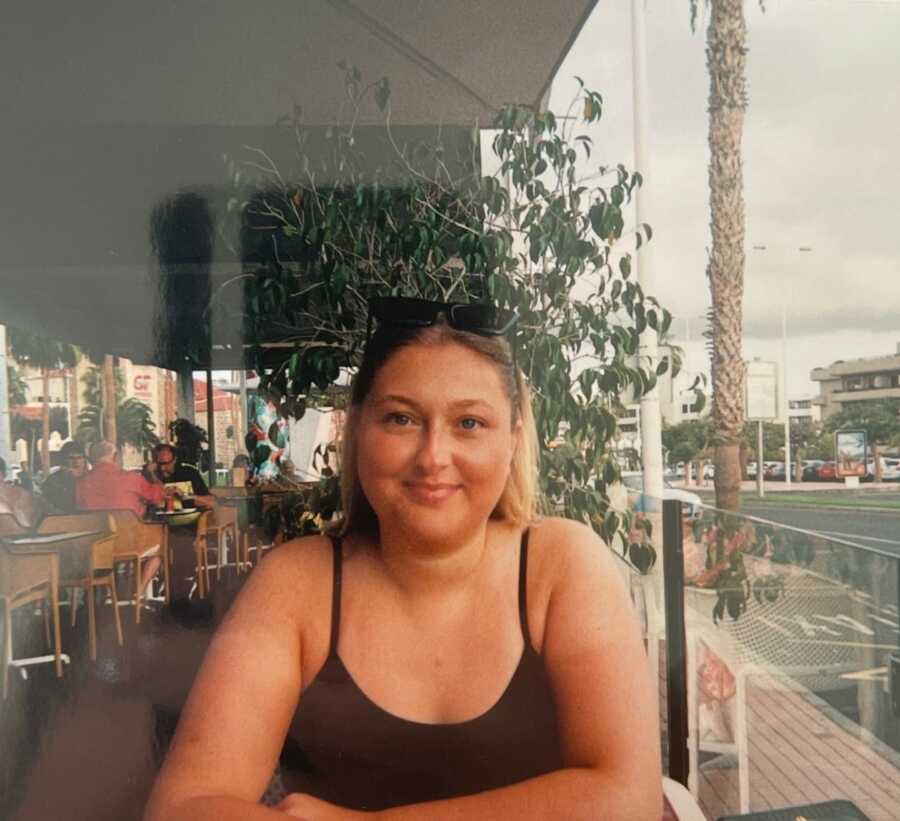
This article was submitted to Love What Matters by Katie Jeffery. You can follow her on Instagram. Join the Love What Matters family and subscribe to our newsletter.
Read more stories like this:
Do you know someone who could benefit from reading this? SHARE this story on Facebook with family and friends.

